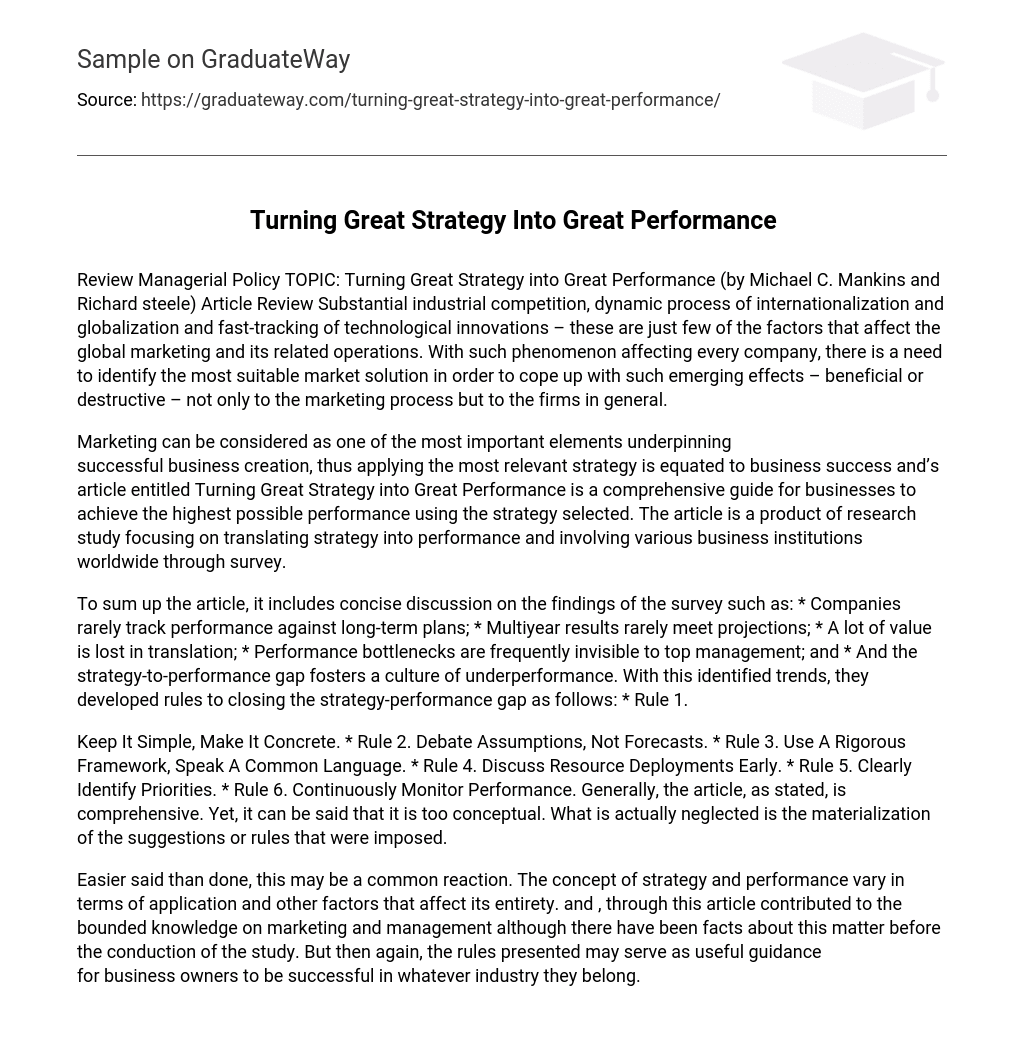Review Managerial Policy TOPIC: Turning Great Strategy into Great Performance (by Michael C. Mankins and Richard steele) Article Review Substantial industrial competition, dynamic process of internationalization and globalization and fast-tracking of technological innovations – these are just few of the factors that affect the global marketing and its related operations. With such phenomenon affecting every company, there is a need to identify the most suitable market solution in order to cope up with such emerging effects – beneficial or destructive – not only to the marketing process but to the firms in general.
Marketing can be considered as one of the most important elements underpinning successful business creation, thus applying the most relevant strategy is equated to business success and’s article entitled Turning Great Strategy into Great Performance is a comprehensive guide for businesses to achieve the highest possible performance using the strategy selected. The article is a product of research study focusing on translating strategy into performance and involving various business institutions worldwide through survey.
To sum up the article, it includes concise discussion on the findings of the survey such as: * Companies rarely track performance against long-term plans; * Multiyear results rarely meet projections; * A lot of value is lost in translation; * Performance bottlenecks are frequently invisible to top management; and * And the strategy-to-performance gap fosters a culture of underperformance. With this identified trends, they developed rules to closing the strategy-performance gap as follows: * Rule 1.
Keep It Simple, Make It Concrete. * Rule 2. Debate Assumptions, Not Forecasts. * Rule 3. Use A Rigorous Framework, Speak A Common Language. * Rule 4. Discuss Resource Deployments Early. * Rule 5. Clearly Identify Priorities. * Rule 6. Continuously Monitor Performance. Generally, the article, as stated, is comprehensive. Yet, it can be said that it is too conceptual. What is actually neglected is the materialization of the suggestions or rules that were imposed.
Easier said than done, this may be a common reaction. The concept of strategy and performance vary in terms of application and other factors that affect its entirety. and , through this article contributed to the bounded knowledge on marketing and management although there have been facts about this matter before the conduction of the study. But then again, the rules presented may serve as useful guidance for business owners to be successful in whatever industry they belong.





